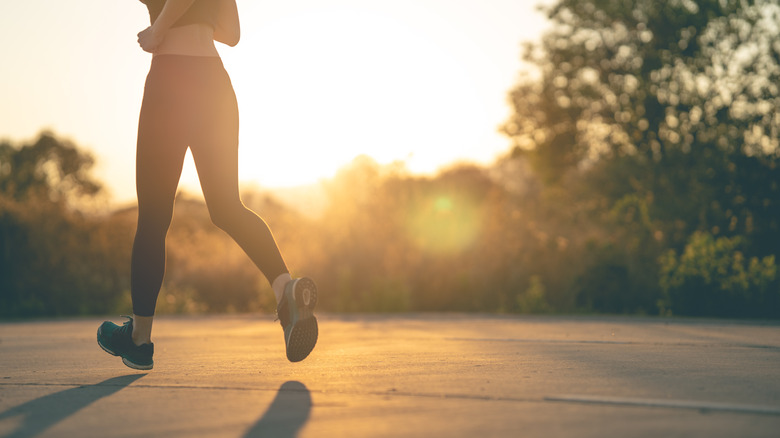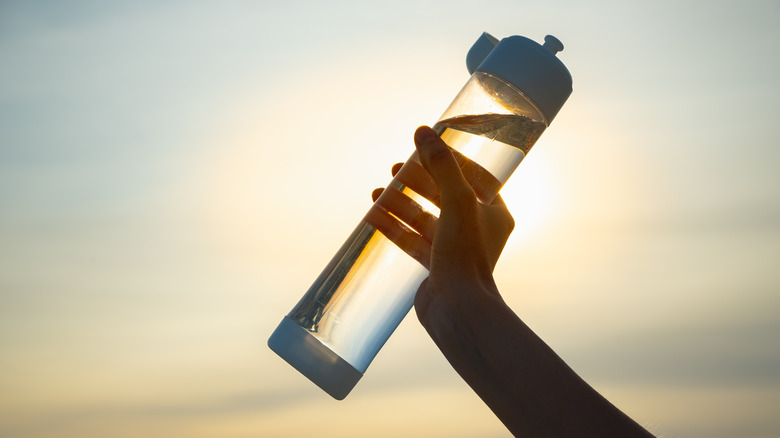How Dangerous Is It To Run During The Summer?
As it turns out, running outside can be quite risky during the summer months. That's because the temperature, humidity levels, and sun exposure can put additional stress on your body. According to Outside, exercising outdoors in a hot and humid environment can lead to a variety of heat-related illnesses. This is largely due to how high levels of heat and humidity can impact your body's ability to sweat and stay hydrated, making running more difficult.
For instance, running outside in the heat can sometimes result in heat cramps. Heat cramps are brief but painful muscle aches caused by electrolyte loss and dehydration, Outside reports. While heat cramps are not serious in and of themselves, they potentially pose a health risk if you don't rehydrate after your workout. Heat exhaustion and heat stroke, however, are much more serious illnesses.
Heat exhaustion can cause your body to overheat, raising your internal temperature to as high as 104 degrees (per Outside). Heatstroke, on the other hand, can lead to a core temperature of over 105 degrees, which can lead to your body shutting down. Symptoms of heatstroke include disorientation, confusion, a lack of sweating, and poor balance.
Safety tips for summer running
Fortunately, there are a few simple tips you can follow to help keep you safe on your summer runs. According to Verywell Fit, one of the most important things you can do when running outside in the heat and humidity is to stay hydrated. If you're going to be working out for more than half an hour, you should bring a bottle of water or Gatorade with you to replace lost fluids and electrolytes. For best use, take a drink whenever your mouth feels dry or whenever you feel thirsty.
Also, the time of day you decide to work out is important. To avoid heat-related illnesses, you should try to exercise when the sun's intensity is at its weakest, which is early in the morning and later in the evening (per VeryWell Fit). Furthermore, wearing the right clothing can help cool your body down. In particular, loose-fitting clothes and light fabrics can help your body breathe and make it easier for your sweat to evaporate.


